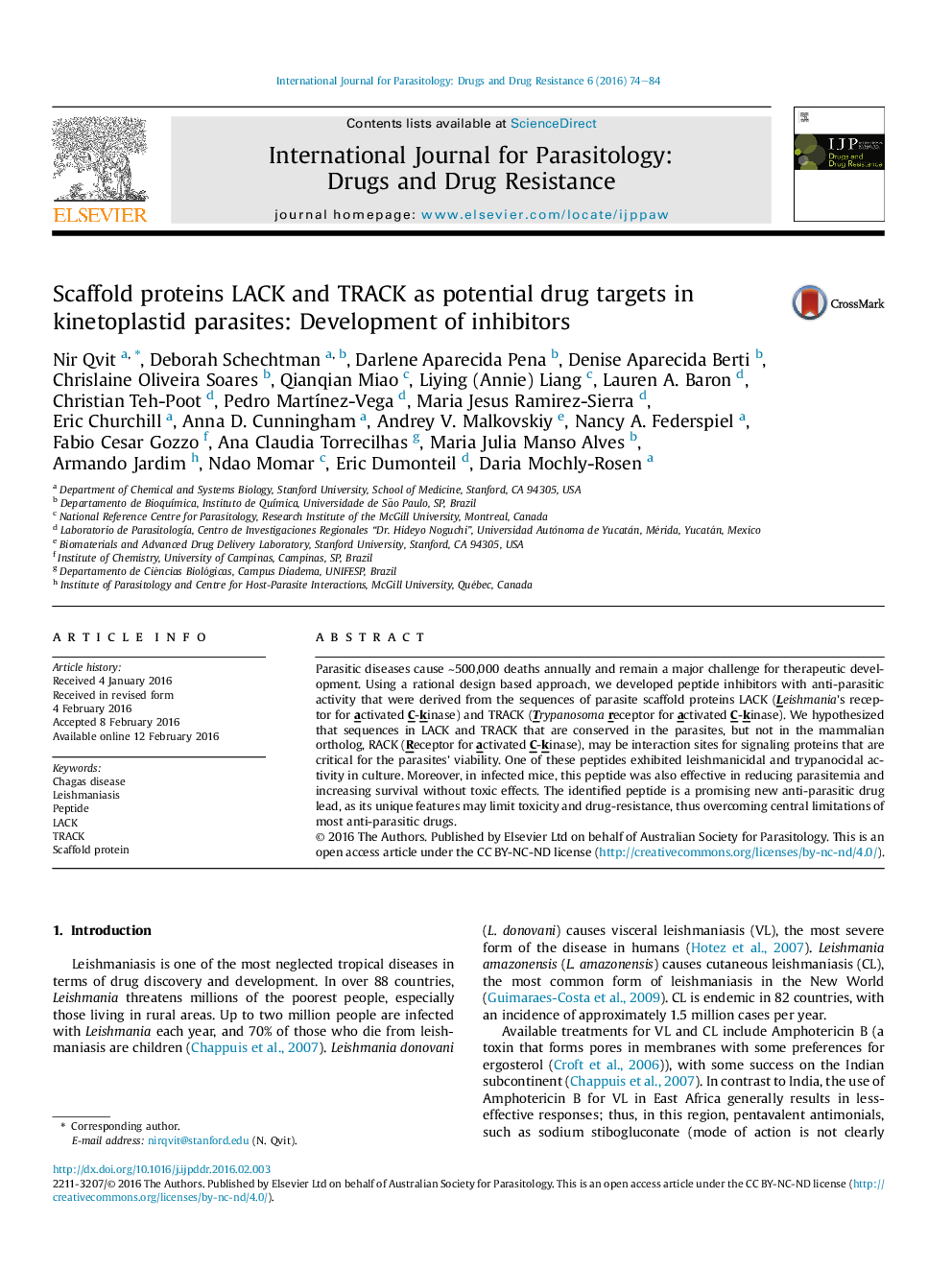| Article ID | Journal | Published Year | Pages | File Type |
|---|---|---|---|---|
| 2055130 | International Journal for Parasitology: Drugs and Drug Resistance | 2016 | 11 Pages |
•Identified unique short sequences conserved in parasite but not in host orthologue.•Peptides corresponding to these sequences are active anti-parasitic drug lead.•Cyclization of the peptides generates drug leads for in vivo proof of concept.
Parasitic diseases cause ∼500,000 deaths annually and remain a major challenge for therapeutic development. Using a rational design based approach, we developed peptide inhibitors with anti-parasitic activity that were derived from the sequences of parasite scaffold proteins LACK (Leishmania's receptor for activated C-kinase) and TRACK (Trypanosomareceptor for activated C-kinase). We hypothesized that sequences in LACK and TRACK that are conserved in the parasites, but not in the mammalian ortholog, RACK (Receptor for activated C-kinase), may be interaction sites for signaling proteins that are critical for the parasites' viability. One of these peptides exhibited leishmanicidal and trypanocidal activity in culture. Moreover, in infected mice, this peptide was also effective in reducing parasitemia and increasing survival without toxic effects. The identified peptide is a promising new anti-parasitic drug lead, as its unique features may limit toxicity and drug-resistance, thus overcoming central limitations of most anti-parasitic drugs.
Graphical abstractFigure optionsDownload full-size imageDownload as PowerPoint slide
